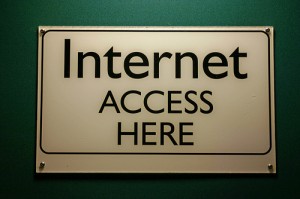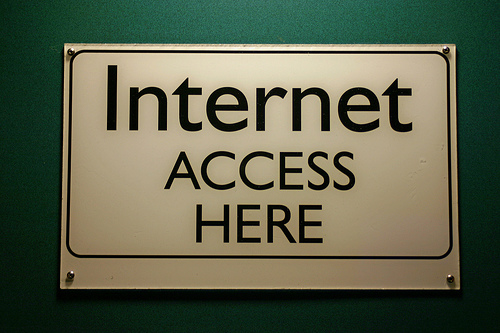By Nick Ubels (Online Editor) – Email
 Imagine that, like the average student, you use the Internet to watch streaming video, download music, play video games, or conduct research for your classes. Now imagine that without changing your web habits, your monthly bill suddenly doubles. This could become a reality for many Canadian Internet users if the CRTC’s ruling on usage-based billing is not reversed.
Imagine that, like the average student, you use the Internet to watch streaming video, download music, play video games, or conduct research for your classes. Now imagine that without changing your web habits, your monthly bill suddenly doubles. This could become a reality for many Canadian Internet users if the CRTC’s ruling on usage-based billing is not reversed.
Canada’s Internet rates are already among the highest in the world, but the CRTC’s approval of Bell Canada’s request for usage-based billing (UBB) will make sure that Canadian consumers pay more for Internet access than any other nation.
Over the past few weeks, the Canadian public has rightly voiced increasing concern over the CRTC’s ruling. UBB is a pricing model that would allow Internet Service Providers (ISPs) to charge users punitive overage charges for each byte that exceeds their monthly limit. Bell has already stated its intention to charge at least $1 per gigabyte for customers exceeding their arbitrary usage caps.
While the CRTC has agreed to delay the implementation of usage-based billing for 60 days in order to review its decision, it remains adamant that UBB is a reasonable pricing model for Internet services, making it unlikely that the regulatory body will reverse its ruling.
Said CRTC Chairman Konrad von Finckenstein on February 3, “We are convinced that internet services are no different than other public utilities, and the vast majority of Internet users should not be asked to subsidize a small minority of heavy users.”
Finckenstein’s statement draws on an argument often voiced by proponents of UBB. They say that the current model of Internet pricing is like that of a buffet, where the bandwidth consumption of a few heavy users is paid for by everyone else. Yet there is a glaring flaw in this argument: increased individual bandwidth consumption does not translate into an actual cost increase for ISPs.
After the initial installation of the infrastructure necessary to provide quality Internet service to users, there are minimal electricity and maintenance expenses to be accounted for. It doesn’t matter whether an individual uses 1 GB or 300 GB of bandwidth, the real costs are the same.
Netflix, a streaming video service that has recently come to Canada, says that it ultimately costs major providers like Bell and Rogers one cent per GB of data transfer, while other experts contend that it is closer to 10 cents. Even if we assume that the true cost is 10 cents per GB, charging $1 per GB for usage beyond one’s cap is a 1000 per cent mark-up. By introducing UBB, the CRTC is essentially allowing these larger providers to price-gouge Canadian consumers.
It is also a means for these corporations to squash a competitive and free marketplace. Bell is a direct competitor with many smaller, independent ISPs that rent their bandwidth space. If Bell is allowed to charge wholesale users in this manner, they can effectively control their competitor’s rates and ensure market dominance.
Pro-UBB campaigners argue that a proposed 25 GB cap is more than enough for the average user. While this may be true of some individuals, it does not take into account households with multiple users, media workers who need to send and receive massive project files over the internet, or those who use streaming video services. Netflix estimates that users will use up to 2 GB of bandwidth per hour of streaming high definition viewing, meaning that if you watch as little as five movies in a month, you are already in danger of exceeding your usage cap.
If implemented, usage-based billing stands to limit internet access to those who can afford to shoulder the new, more expensive rates, seriously damaging the prospect of network neutrality in Canada. It will also cripple Canada’s burgeoning digital economy as businesses will no doubt take their investment dollars to countries with a larger market of internet users.
According to its website, the CRTC was established to “serve the needs and interests of Canadian citizens, industry, and government.” All of the major federal political parties have voiced serious concern over UBB and more than 415, 000 Canadians have signed the petition at stopthemeter.ca. It’s time for the CRTC to stop bowing to pressure from telecom giants like Bell Canada and heed its mandate to the Canadian public.


